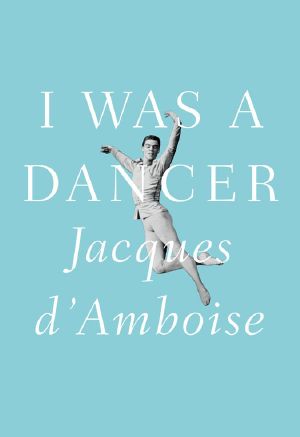I Was a Dancer

- Authors
- D'Amboise, Jacques
- Publisher
- Knopf
- Tags
- biography
- ISBN
- 9780307595232
- Date
- 2011-03-01T00:00:00+00:00
- Size
- 9.93 MB
- Lang
- en
“Who am I? I’m a man; an American, a father, a teacher, but most of all, I am a person who knows how the arts can change lives, because they transformed mine. I was a dancer.”
In this rich, expansive, spirited memoir, Jacques d’Amboise, one of America’s most celebrated classical dancers, and former principal dancer with the New York City Ballet for more than three decades, tells the extraordinary story of his life in dance, and of America’s most renowned and admired dance companies. He writes of his classical studies beginning at the age of eight at The School of American Ballet. At twelve he was asked to perform with Ballet Society; three years later he joined the New York City Ballet and made his European debut at London’s Covent Garden.
As George Balanchine’s protégé, d’Amboise had more works choreographed on him by “the supreme Ballet Master” than any other dancer, among them Tchaikovsky Pas de Deux; Episodes; A Midsummer’s Night’s Dream; Jewels; Raymonda Variations.
He writes of his boyhood—born Joseph Ahearn—in Dedham, Massachusetts; his mother (“the Boss”) moving the family to New York City’s Washington Heights; dragging her son and daughter to ballet class (paying the teacher $7.50 from hats she made and sold on street corners, and with chickens she cooked stuffed with chestnuts); his mother changing the family name from Ahearn to her maiden name, d’Amboise (“It’s aristocratic. It has the ‘d’ apostrophe. It sounds better for the ballet, and it’s a better name”).
We see him. a neighborhood tough, in Catholic schools being taught by the nuns; on the streets, fighting with neighborhood gangs, and taking ten classes a week at the School of American Ballet . . . being taught professional class by Balanchine and by other teachers of great legend: Anatole Oboukhoff, premier danseur of the Maryinsky; and Pierre Vladimiroff, Pavlova’s partner.
D’Amboise writes about Balanchine’s succession of ballerina muses who inspired him to near-obsessive passion and led him to create extraordinary ballets, dancers with whom d’Amboise partnered—Maria Tallchief; Tanaquil LeClercq, a stick-skinny teenager who blossomed into an exquisite, witty, sophisticated “angel” with her “long limbs and dramatic, mysterious elegance . . .”; the iridescent Allegra Kent; Melissa Hayden; Suzanne Farrell, who Balanchine called his “alabaster princess,” her every fiber, every movement imbued with passion and energy; Kay Mazzo; Kyra Nichols (“She’s perfect,” Balanchine said. “Uncomplicated—like fresh water”); and Karin von Aroldingen, to whom Balanchine left most of his ballets.
D’Amboise writes about dancing with and courting one of the company’s members, who became his wife for fifty-three years, and the four children they had . . . On going to Hollywood to make Seven Brides for Seven Brothers and being offered a long-term contract at MGM (“If you’re not careful,” Balanchine warned, “you will have sold your soul for seven years”) . . . On Jerome Robbins (“Jerry could be charming and complimentary, and then, five minutes later, attack, and crush your spirit—all to see how it would influence the dance movements”).
D’Amboise writes of the moment when he realizes his dancing career is over and he begins a new life and new dream teaching children all over the world about the arts through the magic of dance.
A riveting, magical book, as transformative as dancing itself.